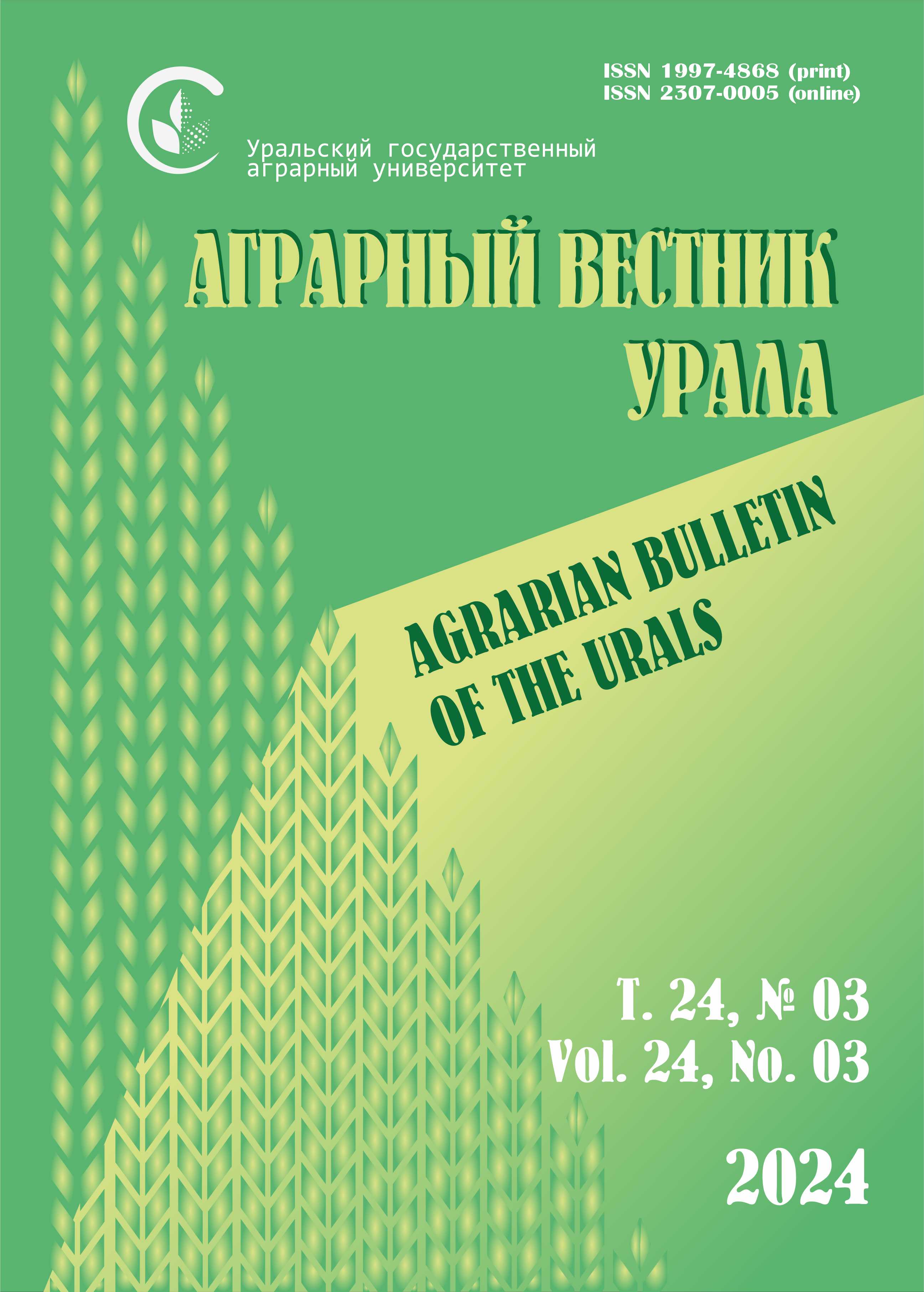Authors: L. B. KARENGINA, candidate of agricultural sciences, associate professor, Yu. L. BAIKIN, candidate of agricultural sciences, associate professor, A. N. FEDOROV, senior lecturer,
Ural State Agrarian University (42 K. Liebknekhta Str., 620075, Ekaterinburg; phone: +7 961 778-90-86, +7 922 142-92-78, +7 922 162-03-83; e-mail: This email address is being protected from spambots. You need JavaScript enabled to view it., This email address is being protected from spambots. You need JavaScript enabled to view it., This email address is being protected from spambots. You need JavaScript enabled to view it.)
Keywords: sapropel, peat compost, annual grasses, barley, yield, payback.
Abstract: Sapropel fertilizers are characterized by high nitrogen content, high heat capacity, environmental cleanliness, lack of nitrogen losses during application and storage, long-term aftereffect (7–14 years). They do not contain weed seeds, are not infected with pathogenic bacteria and flora, rich in biologically active substances (amino acids, broad-spectrum carbohydrates, vitamins, enzymes, trace elements). Due to the slow solubility of the active substances in sapropel, a more balanced nutrition of plants with all the necessary elements is provided. Sapropel reserves in the reservoirs of the Sverdlovsk Region are huge. Using them as organic fertilizers will increase the saturation of arable land with organic matter and provide a deficit-free balance of humus in the soil. Experiments in the effect of sapropel on annual herbs and barley yield were conducted in the vegetation-field and field experiment on light gray forest loamy soil. The soil belongs to the developed group, but needs liming and replenishment. The results of studies conducted on light gray forest soil in vegetation-field experiments in the effect of sapropel on annual herbs and barley yield, showed that at equal doses of application (50 t/ha) sapropel efficiency inferior to traditional peat compost. With an increase in the dose of sapropel in two and three times annual herbs yield increased by 11–70 %. A similar pattern is observed in the cultivation of barley grain. However, despite the increase in yield, the payback of grain fertilizer is reduced.











